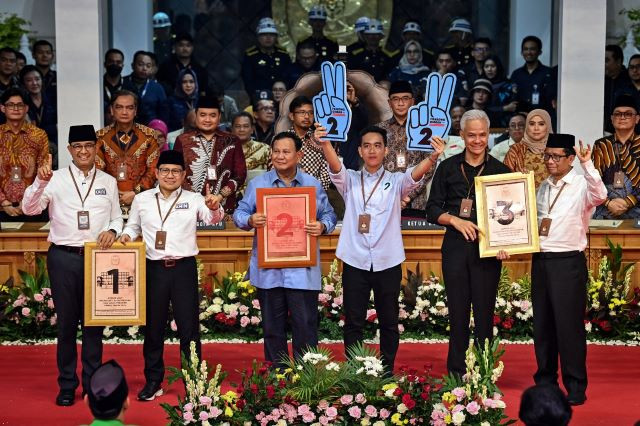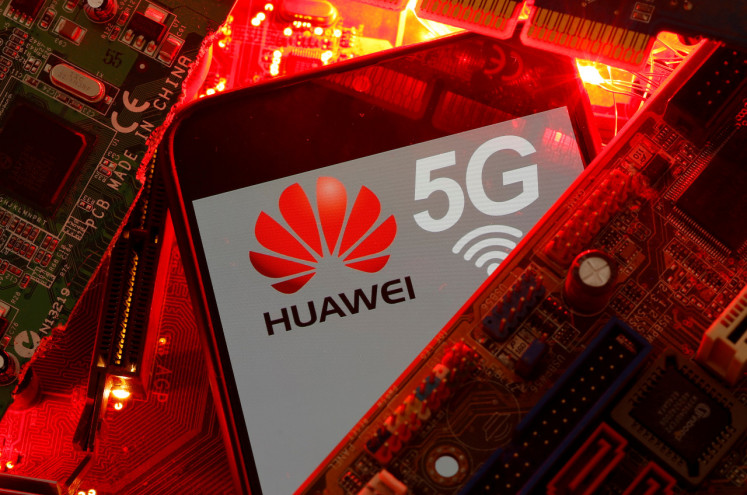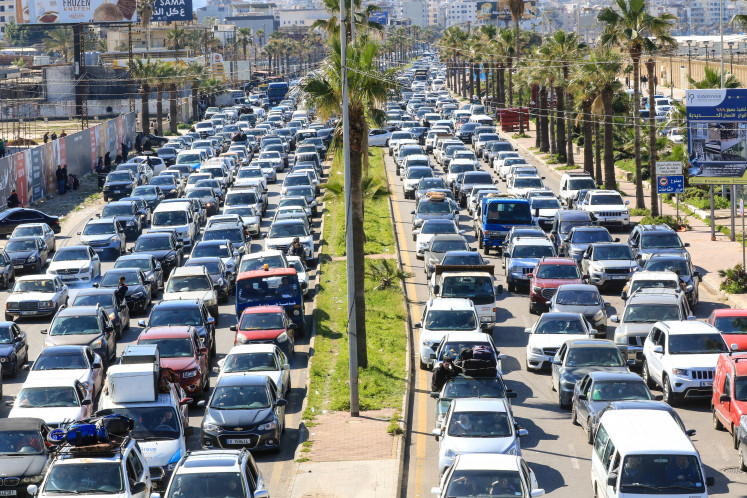Popular Reads
Top Results
Can't find what you're looking for?
View all search resultsPopular Reads
Top Results
Can't find what you're looking for?
View all search resultsMay the best win fairly
For the first time since the fall of the authoritarian New Order in 1998, legitimate concerns have loomed over the integrity of the election.
Change text size
Gift Premium Articles
to Anyone
 Three-way race: Presidential candidates Anies Baswedan (left), Prabowo Subianto (third left) and Ganjar Pranowo (second right) along with their respective running mates Muhaimin Iskandar (second left), Gibran Rakabuming Raka (third right) and Mahfud MD (right) pose after the drawing of ballot numbers for the presidential and vice presidential candidates at the General Elections Commission (KPU) in Jakarta on Nov. 14, 2023. (AFP/Adek Berry)
Three-way race: Presidential candidates Anies Baswedan (left), Prabowo Subianto (third left) and Ganjar Pranowo (second right) along with their respective running mates Muhaimin Iskandar (second left), Gibran Rakabuming Raka (third right) and Mahfud MD (right) pose after the drawing of ballot numbers for the presidential and vice presidential candidates at the General Elections Commission (KPU) in Jakarta on Nov. 14, 2023. (AFP/Adek Berry)

The General Elections Commission (KPU) has officially qualified the contenders for the Feb. 14, 2024 presidential election, setting off the latest electoral race for the State Palace.
The three registered tickets, Anies Baswedan-Muhaimin Iskandar; Ganjar Pranowo-Mahfud MD; and Prabowo Subianto-Gibran Rakabuming Raka; will compete to replace President Joko “Jokowi “Widodo” and Vice President Ma’ruf Amin, who will end their term on Oct 20, 2024. This is the fifth direct presidential election for the country, which chose to ditch authoritarianism and become an electoral democracy 25 years ago.
This election is without a doubt one of the most critical for the country as a fledgling democracy. It is a test case for the resilience of one of our fundamental democratic institutions: the elections themselves.
For the first time since the fall of the authoritarian New Order in 1998, legitimate concerns have loomed over the integrity of the election. It started with President Jokowi’s acknowledgement that he intended to interfere in the search for his successor in his attempt to secure his legacy.
This remark alone evoked fears that the President was planning to tip the balance in favor of a certain political candidate. The suspicion only grew when the Constitutional Court, which was led by his brother-in-law, Anwar Usman, cleared the way for his eldest son, Gibran, to contest the election.
That the President chose a close ally as the new commander of the Indonesian Military (TNI), only fueled speculation that the state apparatus will not be a neutral party in the election.

Indonesian Democratic Party of Struggle (PDI-P) matriarch Megawati Soekarnoputri has warned of potential election fraud in the upcoming election, citing attempts by certain parties to roll back the gains of the Reform movement for the sake of power.
NasDem Party chairman Surya Paloh has also expressed his concern about the fairness of the election, calling on election organizers in July to resist any interference. In a recent speech, Paloh said that there had been attempts by certain parties to use “the state and its apparatus to serve the interests of individuals and groups”.
There have been incidents that many regard as indications of breaches of neutrality by the state apparatus, such as the removal of posters of Ganjar and Mahfud in Bali and North Sumatra by public order officers and the last-minute revocation of a permit to organize a discussion featuring Anies in Bandung, West Java. Meanwhile, Deputy Villages and Development and Disadvantaged Region Minister Paiman Rahardjo was seen in video footage leading a meeting of volunteers supporting Gibran.
At this point, we are giving President Jokowi the benefit of the doubt that he is staying true to his word that he will remain neutral in the election, as he claimed while hosting the three presidential contenders at the State Palace. We are also keeping an eye on the new TNI chief, Agus Subiyanto, who also pledged to maintain the military’s neutrality during his recent confirmation hearing.
That said, this is not a blank check for the President and his allies. They must prove that no members of the state apparatus are mobilized to garner votes for the Prabowo-Gibran pair, which are now widely regarded as the candidates who represent the incumbent.
As the fourth pillar of democracy, the press is expected to play its role as a democracy watchdog to help ensure the integrity of the election. Other civil society forces, particularly election monitoring organizations and the pollsters who will conduct quick counts, are also expected to help safeguard the electoral process.
The latest election surveys have shown that no candidate pair is popular enough to win the election in a single round.
Prabowo’s electability has risen to around 40 percent after Gibran was chosen as his running mate, which has been widely interpreted as the ultimate endorsement from Jokowi. But Ganjar and Anies still stand a chance of catching up, especially after the campaign season starts on Nov. 28.
The election, if it runs equitably, smoothly and peacefully, is still up for grabs. So may the best contenders win, fair and square.









